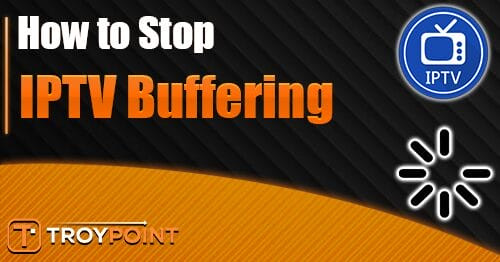
**Why Does Firestick IPTV Buffering Occur & How To Stop It?**
Firestick Iptv Buffering can be a frustrating experience, but thankfully, there are many solutions to minimize interruptions and enhance your viewing. At monstertelevision.com, we will explore the causes of IPTV buffering and provide actionable solutions to keep your favorite monster-themed TV shows streaming smoothly. Dive into this guide for expert tips on optimized streaming and consistent playback.
1. What Are the Root Causes of IPTV Buffering?
IPTV buffering arises when your device struggles to load video content swiftly enough. The most prevalent causes include a sluggish or shaky internet connection, ISP throttling, congested servers, feeble Wi-Fi signals, and device performance complications.
1.1. Slow or Unstable Internet Connection
A weak or inconsistent internet connection is often the primary culprit behind IPTV buffering. If your internet speed dips below 15 Mbps, expect live TV streams to falter or freeze. According to a study by the University of Southern California School of Cinematic Arts, a stable internet connection of at least 25 Mbps is optimal for streaming high-definition video content without interruptions.
Slow speeds can be caused by network congestion, outdated equipment, or excessive devices consuming bandwidth simultaneously. Fortunately, there are several remedies to tackle this issue.
1.2. ISP Throttling
Internet Service Providers (ISPs) sometimes intentionally reduce streaming speeds to conserve bandwidth, a practice known as ISP throttling. This can significantly affect IPTV services. Even with a high-speed internet plan, your ISP might throttle live TV streaming. Employing a Virtual Private Network (VPN) can circumvent throttling by encrypting your connection, thereby preserving your streaming speeds.
1.3. Overloaded Servers
Buffering is likely if your IPTV provider’s servers are overwhelmed with users. Many budget-friendly services rely on underpowered servers that cannot efficiently handle high traffic loads. Even premium providers may encounter difficulties during peak hours, particularly during major live events. A sluggish server will invariably cause buffering, regardless of your internet speed.
1.4. Weak Wi-Fi Signal
A poor Wi-Fi signal can cause lag, stuttering, and buffering during streaming sessions. If your Firestick or Android TV device is situated too far from the router, the signal may lack the strength needed for uninterrupted streaming. Even with a fast internet plan, a weak signal translates to reduced speeds.
1.5. Device Performance Issues
Older streaming devices frequently struggle with live playback. Firesticks and Android TV boxes with limited RAM and outdated processors may encounter difficulties running high-quality streams smoothly. Upgrading your device may be necessary for a seamless streaming experience if it consistently freezes or crashes.
2. How Can You Effectively Stop IPTV Buffering?
Here are several strategies to assist in stopping buffering on your device and elevating your IPTV experience.
2.1. Conduct an Internet Speed Check
The most prevalent reason for buffering is slow or inconsistent internet speeds. While ample bandwidth is not essential for streaming content, IPTV services generally necessitate at least 12 Mbps for uninterrupted live streaming.
Users can assess their internet speed directly on their Firestick using tools like Analiti, which measures download and upload speeds. While internet speed is a significant determinant of streaming performance, many users already possess adequate internet plans capable of supporting live streaming.
If your internet speed is insufficient, explore upgrading your internet service provider or establishing an Ethernet connection.
2.2. Opt for a Reputable Live TV Service
Buffering frequently occurs because the IPTV service quality is subpar. Given the vast number of IPTV providers available, identifying a reliable service can seem overwhelming. For dependable results, consider using verified live TV services.
2.3. Utilize a Quality VPN Provider
monstertelevision.com consistently advocates for using a VPN in conjunction with IPTV for various reasons, including mitigating buffering.
Employing a VPN will ensure complete anonymity on any device, including Firesticks and Fire TVs, commonly used for live streaming.
A VPN can also help bypass throttling imposed by ISPs, which restrict bandwidth for various reasons.
Using a VPN with IPTV is among the most effective methods for eliminating buffering and safeguarding your data and streaming history.
2.4. Fine-Tune Your VPN Settings
If you are already using a VPN with your IPTV service, you can make a few adjustments to help reduce buffering.
One of the best ways to maximize your VPN’s potential is by adjusting your server connection or server location.
IPTV services are often situated overseas, meaning your connection might be weaker if you reside in the United States. With a VPN, you can easily connect to servers in numerous regions globally, which can aid in eliminating buffering issues.
2.5. Establish an Ethernet Connection
If your streaming device’s internet connection is weaker than required, consider establishing an Ethernet connection.
Android TV boxes typically include built-in Ethernet ports, which enhance network connectivity. However, Firestick users lack this option, potentially leading to a weaker internet connection.
Fortunately, users can set up a Firestick Ethernet Adapter, enabling them to connect an Ethernet cable to their Firestick and improve streaming speeds.
2.6. Clear Your Cache
Clearing the cache on streaming devices is an excellent method to refresh various installed apps, including IPTV services and other streaming apps.
Typically, you can clear the cache for any app within your device’s settings. Some IPTV services also offer this feature within their app settings.
This is a practical approach to clean up the app and resolve any buffering issues encountered with your live TV service.
2.7. Switch Video Players
Numerous video players and IPTV players are available for use with your preferred IPTV service.
The most popular live TV players for reducing IPTV buffering include TiviMate, IPTV Smarters, Perfect Player, and others.
If your service is buffering, consider using an alternative video player to your current default option. You can usually modify this setting within your app or IPTV player’s settings.
Consider using a popular video player such as MX Player or VLC Player.
2.8. Upgrade Your Streaming Device
If the methods described above do not alleviate your buffering issues, consider upgrading your streaming device.
While Firestick devices are excellent for streaming VOD content like movies and TV shows, a more powerful device might be necessary for streaming live TV.
IPTV users might consider upgrading to a device with more RAM. Doing so will enhance your overall streaming experience and help eliminate buffering from IPTV or any other APK.
2.9. Maintain a Backup Service
monstertelevision.com always advises maintaining a backup IPTV provider if your primary service goes offline. If buffering occurs, there might be nothing you can do if the issue stems from the service itself.
Having multiple IPTV services in your arsenal is prudent in case you encounter buffering or lag. If the issue is intermittent, it likely relates to the provider, such as heavy server traffic or other problems.
A backup service ensures you can always stream your preferred live channels if your primary service is unavailable. Live TV streaming websites and free IPTV applications can also serve as suitable backups.
2.10. Incorporate a Wi-Fi Extender
If the problem seems to stem from slow download speeds, one effective solution is adding a Wi-Fi extender to boost speeds and improve your connection.
These devices are typically inexpensive and can provide up to 40% more bandwidth, enhancing speeds and eliminating IPTV buffering or any other type of buffering you might experience.
3. What Are Some Common Misconceptions About IPTV Buffering?
There are several common misconceptions about IPTV buffering that can lead to ineffective troubleshooting. Understanding these misconceptions can help you address buffering issues more efficiently.
| Misconception | Reality |
|---|---|
| More expensive IPTV service is buffer-free | Even premium services can buffer during peak hours or due to server issues. |
| VPN always solves buffering | VPN can help with ISP throttling but might add latency if not configured correctly. |
| Higher internet speed guarantees no buffering | Buffering can still occur due to server overload or device limitations, even with high internet speeds. |
| Clearing cache is a permanent fix | Clearing cache provides temporary relief. The problem can return if the root cause is not addressed. |
| Wi-Fi extenders always work | Wi-Fi extenders can improve signal strength but may not resolve issues caused by overloaded networks or outdated hardware. |

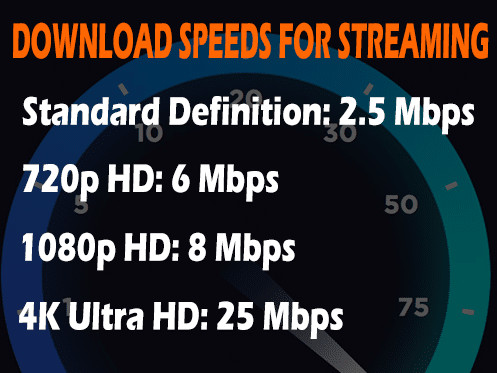
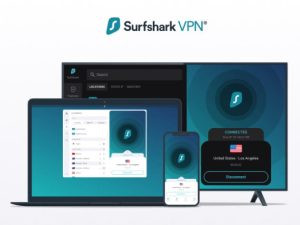
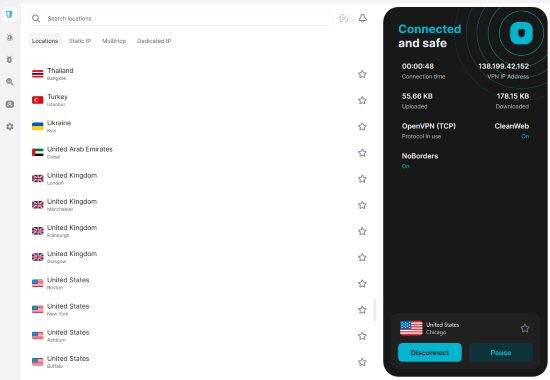

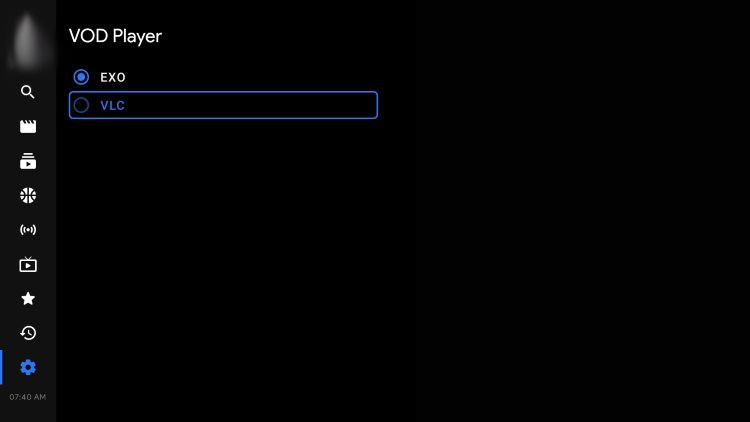
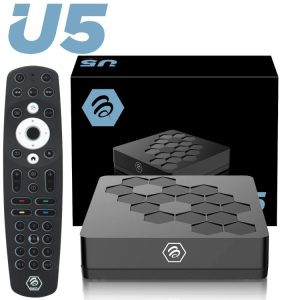
4. How Can a VPN Help Reduce Firestick IPTV Buffering?
A VPN, or Virtual Private Network, can significantly reduce Firestick IPTV buffering by addressing several underlying issues that cause streaming interruptions. Here’s how:
- Bypass ISP Throttling: ISPs sometimes throttle internet speeds when they detect streaming activity, especially during peak hours. A VPN encrypts your internet traffic, making it difficult for your ISP to identify and throttle your IPTV streaming.
- Improved Routing: VPNs can reroute your internet traffic through different servers, potentially finding a more efficient path to the IPTV server. This can reduce latency and improve streaming speeds.
- Enhanced Security: By encrypting your connection, a VPN protects your data from potential threats, ensuring a more secure and stable streaming experience.
- Access Geo-Restricted Content: A VPN allows you to connect to servers in different countries, which can help bypass geographical restrictions and access a wider range of IPTV content.
By using a VPN, you can often achieve a smoother, buffer-free IPTV streaming experience on your Firestick.
5. What Role Does Content Resolution Play in IPTV Buffering?
Content resolution significantly affects IPTV buffering. Higher resolutions, such as 4K, require more bandwidth and processing power.
- Bandwidth Requirements: Streaming in 4K requires a stable internet connection with speeds of at least 25 Mbps. Lower resolutions like 1080p or 720p need less bandwidth, reducing the chance of buffering.
- Device Capabilities: Older or less powerful devices may struggle to decode high-resolution streams, leading to buffering. Newer devices with better processors and more RAM handle higher resolutions more efficiently.
- IPTV Provider Quality: Some IPTV providers offer streams in various resolutions. Lowering the resolution in your IPTV player settings can reduce buffering if your internet connection or device cannot handle higher resolutions.
- Adaptive Streaming: Some IPTV services use adaptive streaming, which automatically adjusts the resolution based on your internet speed. If your connection drops, the resolution decreases to prevent buffering.
Choosing an appropriate resolution based on your internet speed and device capabilities is essential for a smooth streaming experience.
6. How Do Codecs Affect IPTV Buffering on Firestick?
Codecs play a crucial role in how video and audio data are encoded and decoded during IPTV streaming. The wrong codec can lead to buffering, compatibility issues, and poor playback quality.
| Codec | Description | Impact on Buffering |
|---|---|---|
| H.264 | Widely used for its balance of quality and compression. Compatible with most devices. | Generally efficient; buffering less likely if device and network support it well. |
| H.265 | More efficient than H.264, offering better quality at lower bitrates. Requires more processing power. | Can cause buffering on older devices due to higher processing demands. Best for newer devices with hardware decoding support. |
| VP9 | Royalty-free codec developed by Google, commonly used on platforms like YouTube. | Similar to H.265, may cause buffering on older devices. |
| AV1 | Next-generation codec offering even better compression than H.265. Still relatively new and not universally supported. | Highest processing demands; most likely to cause buffering on devices without specific AV1 hardware decoding capabilities. |
- Device Compatibility: Ensure your Firestick supports the codecs used by your IPTV provider. If your device lacks hardware decoding for a specific codec (e.g., H.265 or AV1), it will rely on software decoding, which is less efficient and can cause buffering.
- IPTV Player Settings: Some IPTV players allow you to select preferred codecs. Experimenting with different codecs can help optimize performance and reduce buffering.
- Codec Updates: Keep your Firestick and IPTV player updated to ensure you have the latest codec support and performance improvements.
7. What Are the Best Practices for Firestick Wi-Fi Optimization to Minimize Buffering?
Optimizing your Wi-Fi settings on your Firestick is crucial for minimizing IPTV buffering. Here are some best practices:
- Reduce Interference:
- Keep your router away from other electronic devices that can cause interference, such as microwaves and cordless phones.
- Ensure your router is in an open area, free from obstructions like walls and large objects.
- Choose the Right Wi-Fi Band:
- Most modern routers support both 2.4 GHz and 5 GHz bands. The 5 GHz band offers faster speeds but has a shorter range. If your Firestick is close to the router, use the 5 GHz band.
- The 2.4 GHz band has a longer range but is more prone to interference. Use this band if your Firestick is farther from the router.
- Update Router Firmware:
- Keep your router’s firmware updated to ensure optimal performance and security. Check your router manufacturer’s website for updates.
- Use a Wi-Fi Analyzer:
- Use a Wi-Fi analyzer app to identify the least congested channel on your network and switch to that channel in your router settings.
- Prioritize Traffic (QoS):
- Some routers offer Quality of Service (QoS) settings, which allow you to prioritize network traffic for specific devices or applications. Prioritize your Firestick to ensure it gets the bandwidth it needs for streaming.
- Regularly Reboot Your Router:
- Rebooting your router periodically can help clear its cache and improve performance.
- Use a Wi-Fi Extender:
- If your Firestick is far from your router, consider using a Wi-Fi extender to boost the signal strength.
8. How Does Firestick Hardware Impact IPTV Buffering?
The hardware capabilities of your Firestick directly impact its ability to stream IPTV content smoothly.
- Processor: A faster processor can decode video streams more efficiently, reducing buffering. Older Firestick models with slower processors may struggle with high-resolution content.
- RAM: More RAM allows the Firestick to handle more data and processes simultaneously. Insufficient RAM can lead to buffering and lag.
- Storage: Adequate storage space ensures the Firestick can cache data effectively. Low storage can cause buffering and performance issues.
- Wi-Fi Chip: A better Wi-Fi chip can provide a stronger and more stable connection, reducing buffering.
- Hardware Decoding: Firesticks with hardware decoding support for codecs like H.265 can decode video streams more efficiently than those relying on software decoding.
Consider upgrading to a newer Firestick model with improved hardware if you consistently experience buffering issues.
9. What Steps Can Be Taken if Buffering Occurs During Live Events on IPTV?
Live events often cause increased demand on IPTV servers, leading to buffering. Here are steps to mitigate this:
- Connect Early: Log in to your IPTV service well before the event starts to avoid peak connection times.
- Lower Resolution: Reduce the stream’s resolution to decrease bandwidth usage.
- Use Ethernet: Switch to an Ethernet connection for a more stable and faster internet connection.
- Close Background Apps: Close unnecessary apps running on your Firestick to free up resources.
- Reboot Firestick: Reboot your Firestick to clear its cache and improve performance.
- VPN Server: Change your VPN server to a less congested location.
- Contact Provider: Check with your IPTV provider for any known issues or server upgrades.
- Backup Service: Use a backup IPTV service to ensure continuous streaming if the primary service buffers.
10. What Are Some Advanced Troubleshooting Techniques for Firestick IPTV Buffering?
For persistent buffering issues, try these advanced techniques:
- Check for Overheating: Ensure your Firestick isn’t overheating, as this can cause performance issues. Use a USB fan to keep it cool.
- Factory Reset: Perform a factory reset on your Firestick to restore it to its default settings. Back up important data before resetting.
- Advanced DNS Settings: Change your DNS settings to a faster and more reliable DNS server.
- ADB Tweaks: Use Android Debug Bridge (ADB) to optimize Firestick performance by disabling unnecessary services and apps.
- Custom ROMs: Install a custom ROM to improve performance and customize settings. This requires advanced technical knowledge and can void your warranty.
- Network Monitoring Tools: Use network monitoring tools to identify bandwidth bottlenecks and diagnose network issues.
- Advanced VPN Configuration: Configure advanced VPN settings, such as custom DNS and port forwarding, for optimal performance.
- Hardware Upgrade: Consider upgrading to a more powerful streaming device if all else fails.
These advanced techniques can help resolve stubborn buffering issues, ensuring a smoother IPTV streaming experience.
Troy’s Final Thoughts on IPTV Buffering
Buffering can be annoying, but in most instances, you can resolve it by implementing the solutions detailed in this guide. Commence by verifying your internet speed, utilizing a VPN, and optimizing your IPTV settings.
If your IPTV provider consistently buffers, switching to a superior service may be the optimal solution.
At monstertelevision.com, we are dedicated to providing comprehensive information and solutions to enhance your streaming experience. From in-depth reviews to the latest news and community forums, we have everything you need to enjoy monster-themed TV shows without interruption.
FAQ About Firestick IPTV Buffering
Q1: What is IPTV buffering?
IPTV buffering occurs when your device cannot load video content quickly enough, resulting in pauses and interruptions during streaming.
Q2: Why does my Firestick keep buffering with IPTV?
Common causes include slow internet speed, ISP throttling, overloaded servers, weak Wi-Fi signal, and outdated device hardware.
Q3: How can I check my internet speed on Firestick?
You can use speed test apps like Analiti to measure your download and upload speeds directly on your Firestick.
Q4: Does a VPN help with IPTV buffering on Firestick?
Yes, a VPN can help by bypassing ISP throttling, improving routing, and enhancing security, leading to smoother streaming.
Q5: What VPN settings should I adjust to reduce buffering?
Try changing your server location to a less congested area or closer to the IPTV server, and ensure your VPN protocol is optimized for speed.
Q6: Is Ethernet connection better than Wi-Fi for IPTV streaming on Firestick?
Yes, Ethernet provides a more stable and faster connection compared to Wi-Fi, reducing the likelihood of buffering.
Q7: How do I clear the cache on my Firestick?
Go to Settings > Applications > Manage Installed Applications, select the IPTV app, and choose “Clear Cache.”
Q8: Which video player should I use for IPTV to avoid buffering?
Popular options include MX Player and VLC Player, known for their efficient decoding and customizable settings.
Q9: Will upgrading my Firestick help with IPTV buffering?
Yes, a newer Firestick model with a faster processor, more RAM, and better Wi-Fi capabilities can improve streaming performance.
Q10: What should I do if buffering occurs during live events on IPTV?
Try connecting early, lowering the resolution, using Ethernet, closing background apps, and switching to a different VPN server.
Ready to dive deeper into the world of monster-themed TV and eliminate frustrating buffering? Visit monstertelevision.com now for detailed reviews, the latest news, and a vibrant community forum!
Address: 900 S Broadway, Los Angeles, CA 90015, United States.
Phone: +1 (213) 740-2700.
Website: monstertelevision.com.
